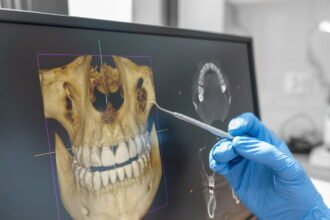The FDA is tasked with ensuring that prescription drugs and medical devices are as safe as possible. They have the equal obligation to ensure that drugs and devices are as effective as possible. Those objectives are often in conflict because caution and innovation are opposite agendas, and healthcare and the tech revolution raise all sorts of questions.
In order to bridge that gap, the FDA is exploring the promise and potential of AI (artificial intelligence.) Technologies that integrate, organize, and analyze massive amounts of data have promising applications throughout healthcare. The only problem is that AI in healthcare is largely unregulated, leaving stakeholders unsure about where, when, and how to implement it.
The FDA is aiming to reconcile this issue and lay the groundwork for the future of health BI and data-driven medicine. Here are some of the objectives on their agenda:
Benchmarking the Performance of AI – AI must be proven to be accurate and consistent before being applied to something as sensitive as healthcare. The FDA is collecting large data sets to test with AI and develop performance benchmarks. Those tests will eventually reveal where and when AI offers an advantage over human clinicians and diagnosticians.
Collecting Data From Patients – AI is great at analyzing data, but it’s also great at collecting it. Devices worn by patients (like fitness trackers) intelligently monitor health in real-time and transmit data instantaneously. The FDA is working to promote the use of wearable devices and collect more of the anonymized data in one location.
Improving Clinical Trials – Clinical trials are slow-moving and resource-intensive for a reason – to verify that new drugs are completely safe. However, the amount of effort necessary inhibits research and ultimately makes drugs more expensive. The FDA is exploring how AI could speed up the pace of clinical trials while creating safer drugs at the same time.
The FDA is quickly becoming an advocate for AI, but the enthusiasm is not limited to the public sector. Hospital, clinics, and providers at all levels are eager to use AI to solve some of their most persistent challenges – specifically supply chain management.
Managing materials is incredibly complex and has a deep impact on the bottom line. AI allows providers to monitor supply chains in real time and track prices and availability. Relatively quickly it’s possible to begin cutting costs and eliminating shortages, all while streamlining the supply chain. The benefit to providers is obvious, but it also extends to patients who ultimately spend less for the care they require.
Considering that there is demand for AI from all corners of healthcare, innovation and adoption are likely to be rapid in coming years. As healthcare undergoes a digital transformation, stakeholders at all levels are looking for ways to turn data into actionable insights. AI has the required intelligence and can also accommodate a massive scale, making it uniquely suited for healthcare applications.
To put this potential in dollars and cents terms, consider that the AI healthcare market is expected to reach $6.6 billion in annual revenues by 2021. At the same time, it will save providers a projected $150 billion by 2026. With figures like that it’s not surprising that even a cautious entity like the FDA is so enthusiastic about the future of AI.







